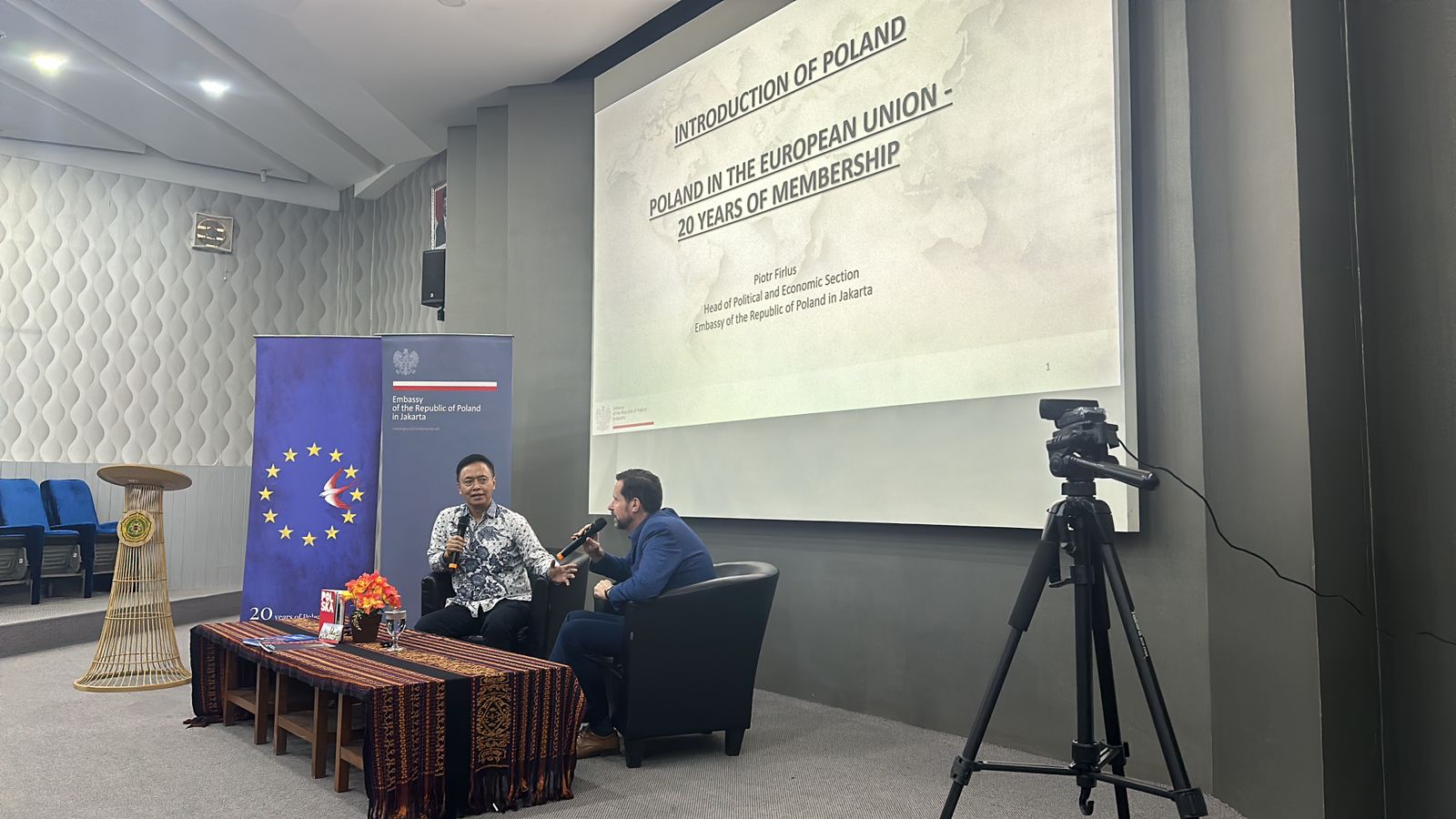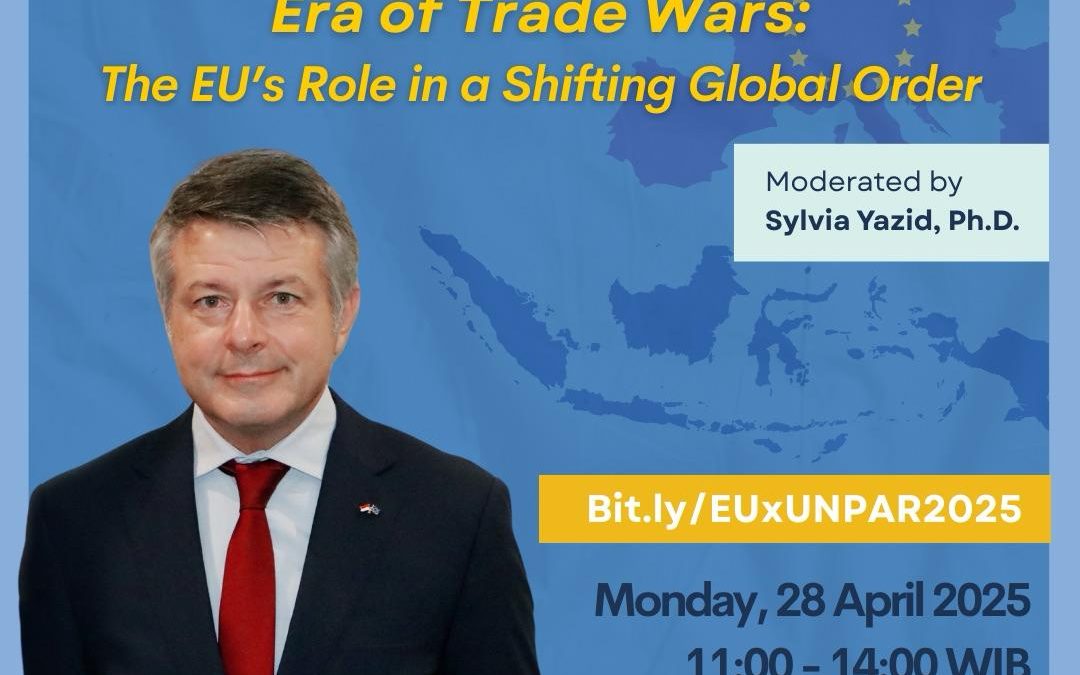A guest lecture with Piotr Firlus, Counsellor, Head of Political and Economic Section of the Embassy of the Republic of Poland in Indonesia
It is generally understood that Poland has a unique geopolitical position in the world. In the past, Poland was under the influence of the Soviet Union within the Warsaw Pact which became NATO’s main rival during the Cold War period. As the global conflict reached its end, Poland decided to join NATO in 1999 and officially became a member of the European Union in 2004. Nowadays, its direct proximity to Ukraine makes the country have an exceptionally strategic role in handling the impact of the Russia-Ukraine war. Poland is currently also projected to be a part of China’s Belt and Road Initiative (BRI) roadmap, which makes Poland’s position more important than ever.
Understanding Poland’s distinctive position and role within the present European political dynamic, PACIS-PACES invites Mr. Piotr Firlus, Counsellor and Head of Political and Economic Section of the Embassy of the Republic of Poland in Indonesia to share his views as well as discuss several issues with lecturers and students of Parahyangan Catholic University (Unpar) last month in a guest lecture session on June 5, 2024.
The diplomat, who once worked for Poland’s Office of Prime Minister, shared several benefits felt by the country upon joining the Union. For instance, Poland’s GDP growth was the second highest in the world in the last 30 years. This achievement was closely followed by Indonesia which ranked third highest. Along with the aforementioned classification, the economy of Poland was ranked to be 21st in the world while Indonesia is ranked 16th. With such positive circumstances between two countries, it is clear that Poland and Indonesia have strong reasons to continue developing the long standing diplomatic relations that have been built for 69 years.
The discussion continues as Mr. Firlus comprehensively talks about the European Union. Believed to be the most advanced regional organization, the Union consists of a body called Customs Union which is characterized by the existence of a free trade area, a single external border, absence of tariffs between European Union members, and the formation of collective tariffs for non-member countries which are determined and managed by the European Commission.
The existence of the Customs Union allows Poland to experience a major increase in Poland’s economic growth as it enables Polish businesses to compete with economic entities from other member states.
Mr. Firlus also acknowledges that European Union member states must yield some of their sovereignty to support the Union’s system and integration to function optimally. However, it outweighs the benefits obtained- as the important matter for the government is to create prosperity for Polish people.
In addition to that, Mr. Firlus eagerly discussed the important role Poland has played in tackling several global matters. One of which is the climate change issue, as Poland has hosted the Conference of Parties three times: COP 14 in Poznan (2008), COP 19 in Warsaw (2013) and COP 24 in Katowice (2018).
Reaching the end of the session, many questions emerged from the participants. Among these are questions about why Poland has not used the Euro currency, what priorities are emphasized in relations between Poland and Ukraine, Poland’s role in supporting the resolution of the conflict between Russia and Ukraine, as well as issues related to relations between Indonesia and the European Union such as raw palm oil (CPO) and nickel ore.
Before ending his visit, Mr. Firlus, who will soon end his duties in Jakarta, Indonesia, shared his perspective on relations between Poland and Indonesia, along with the country’s position in responding to the developments in contemporary geopolitical issues through the Ngobrolin HI Podcast.
Author: Adelia Jessica and Yulius P Hermawan







